Hygiene poverty: 'Make-up helps me hide my demons'
- Published
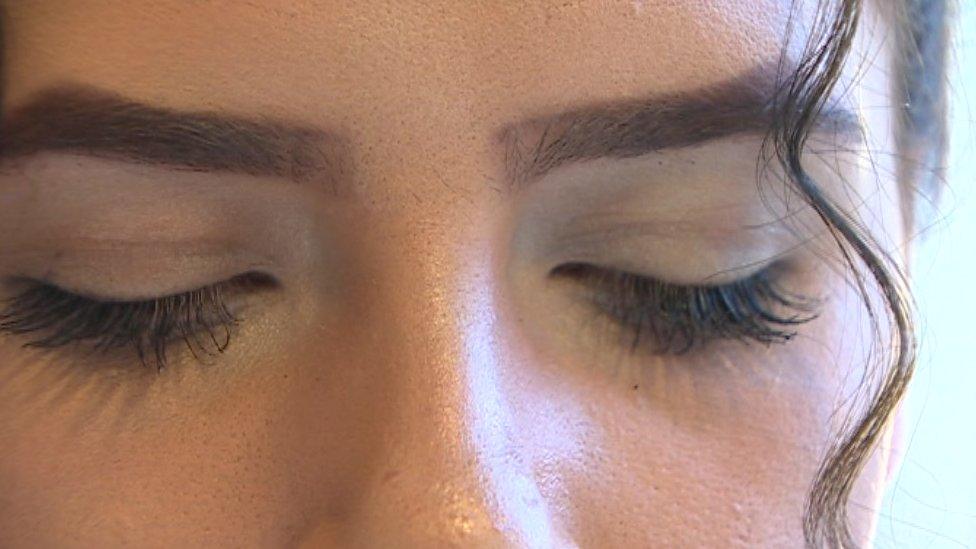
Shannon Chittenden says some foundations are simply too expensive for her to buy
"It started just because I didn't have foundation and I know that sounds stupid in some eyes, but to me it means a lot.
Foundation might just be a beauty product for other girls, but for me it's like another facial cover-up. I can hide my demons."
For Shannon Chittenden, 18, from Cardiff, hygiene poverty is not just a cause of embarrassment - it is a trigger for her mental health problems.
But people like Shannon are now being offered help by groups such as Beauty Banks, which distribute thousands of products to those in hygiene poverty.
"Foundation and beauty products, even just coming down to a bit of blusher, raise a smile on someone's face," Shannon said.
"And at that time when I didn't have it, I felt like I wasn't me. I felt like I couldn't present myself to society, I couldn't show a strong individual because I felt so low on my appearance.
"It did [take] a massive toll on me... it almost feels as if you don't have anyone to help you."
Research by the Trussell Trust, which has a network of food banks across the UK, suggests more than half of people using its services cannot afford toiletries, and in Wales there has been a 13% increase in their use in six months, compared to the same period last year.
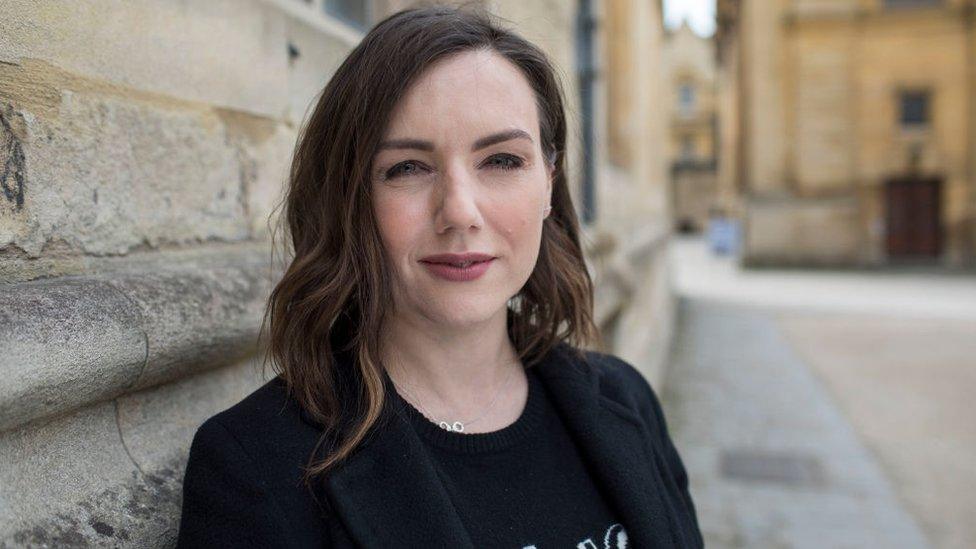
Beauty Banks founder Sali Hughes said they aim to alleviate personal hygiene and dignity issues for UK residents living in serious poverty
Sali Hughes, journalist and founder of Beauty Banks, said: "We provide products to foodbanks, homeless shelters, NHS trusts, schools, family centres, and shelters for women and children fleeing domestic violence.
"Around 80% of our products are given to us by the beauty industry for free. They are discontinued, reformulated or repackaged products. The remaining 20% comes from members of the public, who shop our wish lists online or send us their unwanted toiletries."
But Helen Bull, who runs the trust's foodbanks in Cardiff, said for them the focus remained on food.
"It [beauty] is a big issue, it affects people's dignity and self-esteem when they're already suffering in lots of other ways. But the priority is food followed by finance."
Shannon, who cannot currently work due to her mental health problems, was left homeless for a period while studying at college.
She receives £230 a month in Universal Credit payments after the rent is paid at the hostel where she now lives.
Her living costs have occasionally left her having to choose between food or hygiene, sanitary and beauty products.
"[Sanitary] pads are more than £1. If you want extra comfort or if you want wings, you're paying nearly £2 [or] £3 for a pack of only 12 pads," she added.
"Three pound can go a long way. To me that's like bread, milk and butter. That can last me seven days."
Shannon said her inability to buy certain products had previously left her feeling isolated, depressed and, ultimately, "destroyed".
Hygiene poverty: 'Make-up makes me strong' says Shannon Chittendon
"When I don't feel my best, I don't want to see people and… I'm really sad or I keep a low mood.
"I'm not my normal self. I genuinely believe that is because I may not have foundation that day or I may not have a [sanitary] pad to put on, instead I've got to wear tissue, or I haven't shaved my legs.
"It's just the simple things, they make you feel so down.
"Because, other people don't know about it, you do. You are what you've got. If you aren't making yourself happy, who else is going to make you happy?"
It is precisely for people like Shannon that Beauty Banks, a not-for-profit group, was founded by journalist Sali Hughes and beauty director Jo Jones.
The organisation gathers toiletries and hygiene products donated from the beauty industry and the public to create care packs for food banks and shelters across the UK.
Ms Hughes - who has written in the past about her own experience of homelessness, external - said clean hair, skin and teeth were "a right, not a privilege, external" and that personal hygiene was "crucial for our dignity, self-respect, personal pride and mental health".
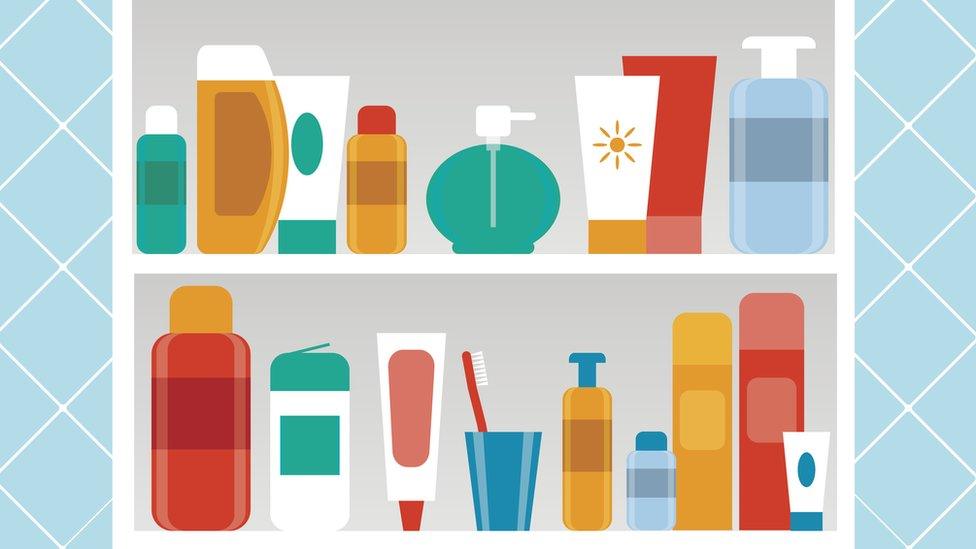
Cardiff-based homelessness charity Llamau works with Beauty Banks to ensure its care packs reach those who need them most in south Wales.
Llamau has delivered at least 1,000 in the last six months.
The packs include sanitary products, disposable razors, shampoo, shaving foam and shower gel, but also face wipes, hand gel and skin cream.
Sam Lewis, operational director at Llamau, said the scheme helped clients with their budgeting, their self-esteem and their hygiene.
"It can make a massive difference, from the basics, of not being able to afford sanitary towels, not being able to feel clean, feeling that you can't go out when you've got your period.
"[And] in terms of confidence and just being able to be presentable and to be able to afford some of the treats the rest of us just chuck in with our weekly shopping, being able to have some make-up you can use for making yourself look good for going to job interviews."
She said it can also be important for people in difficult financial circumstances to feel "a little bit pampered".
"Without access to this, it would put some of the vulnerable people we support in a much worse situation," she added.
- Published23 February 2018
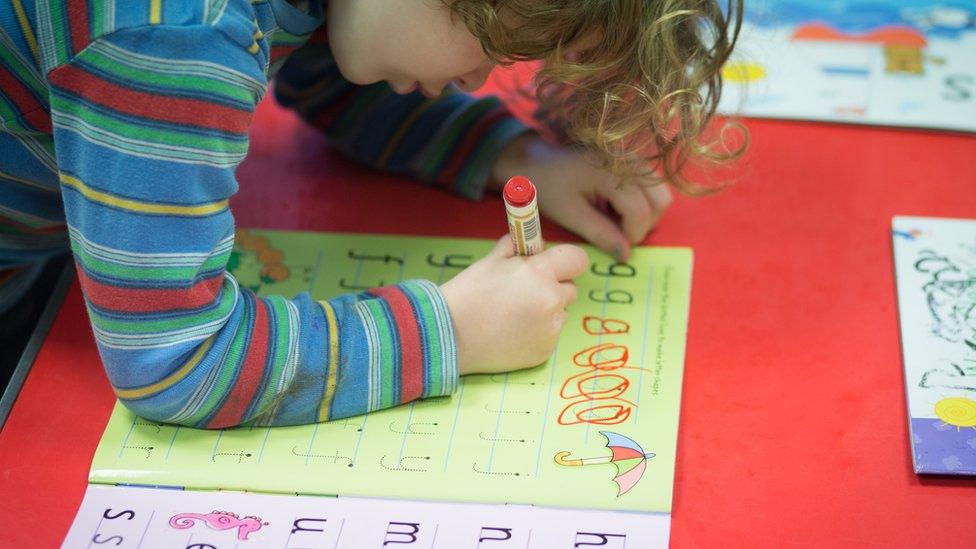
- Published2 March 2018
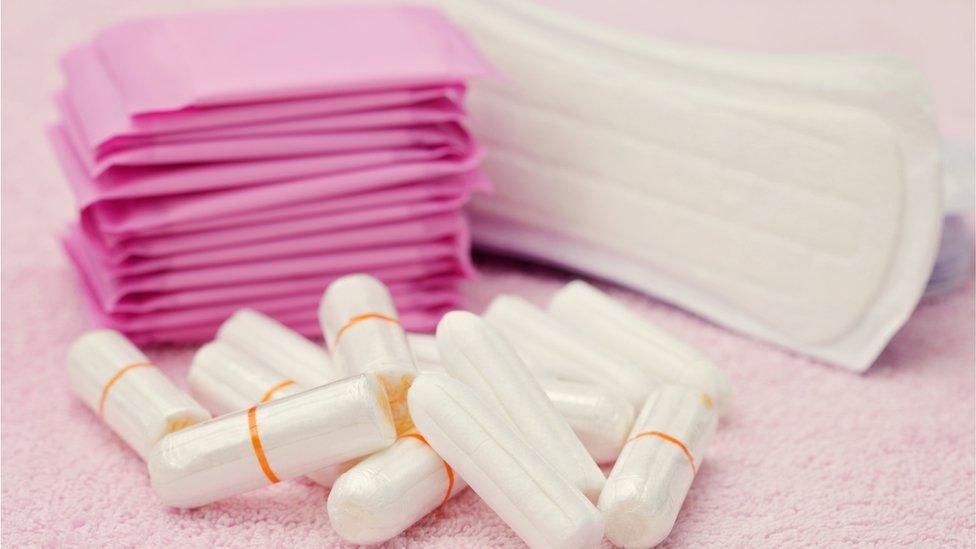
- Published8 December 2017

- Published15 February 2018
